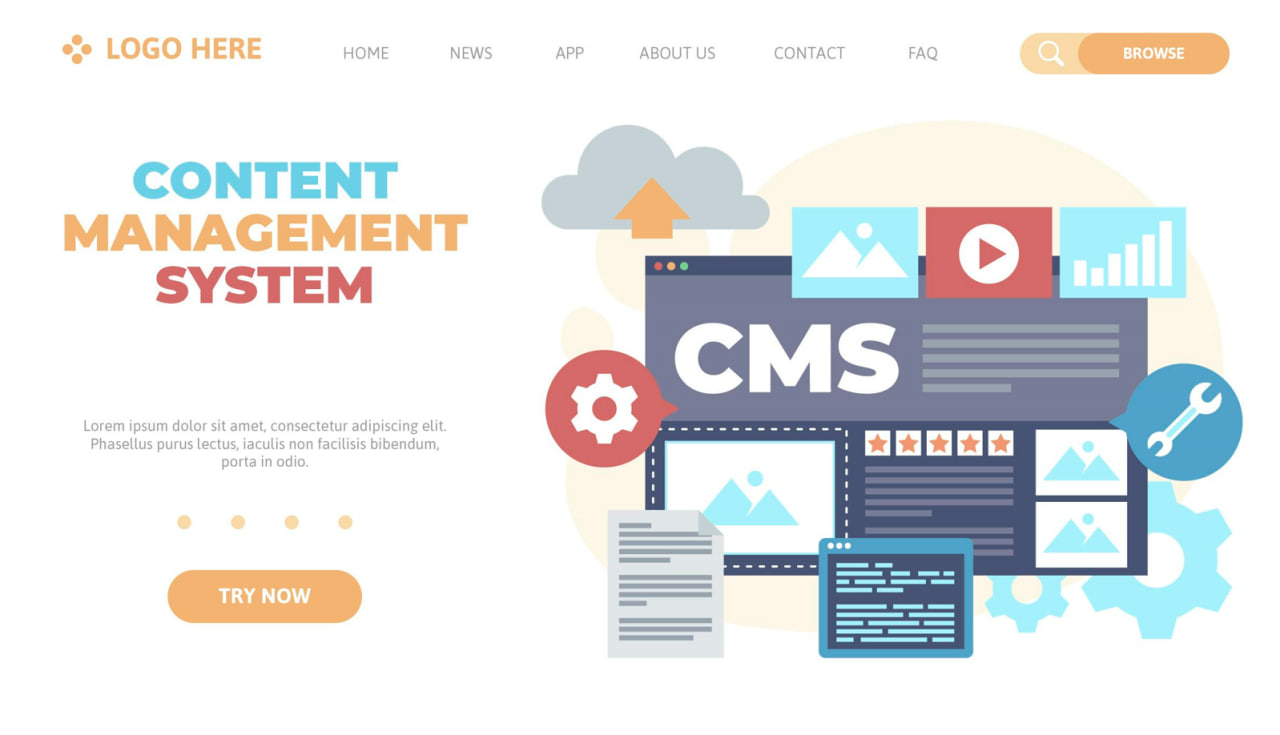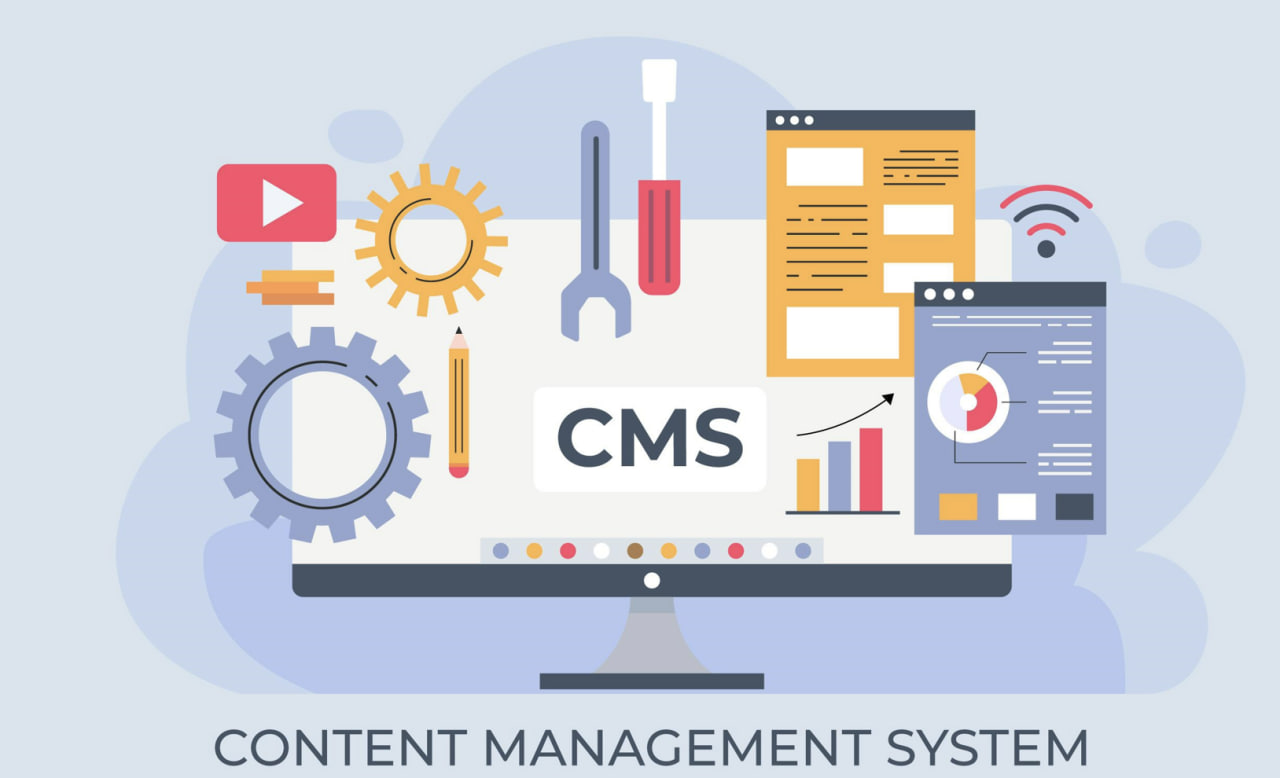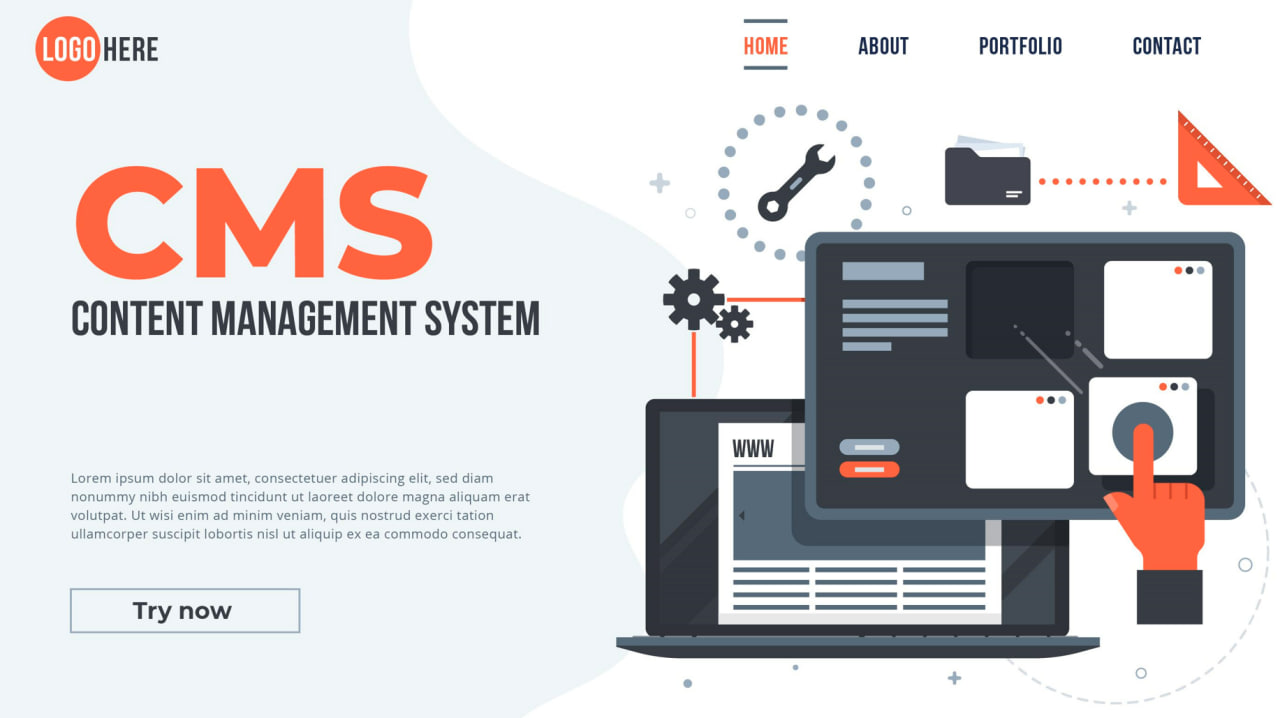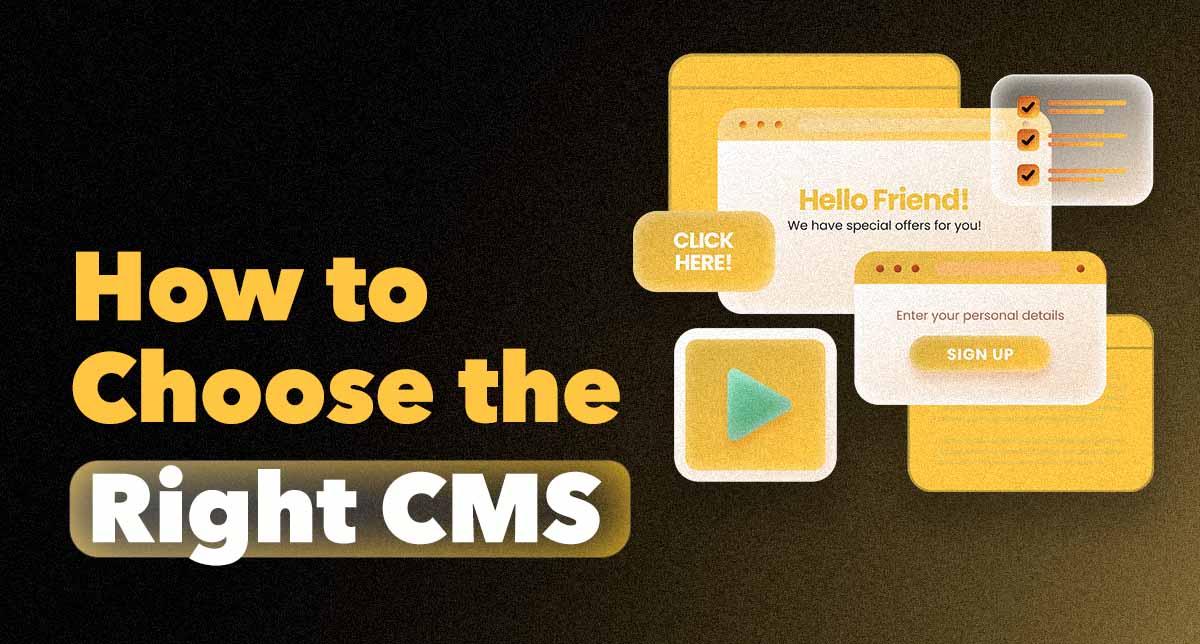Choosing the right Content Management System (CMS) can be the difference between a smooth running, scalable website and one that constantly causes headaches. Whether you're launching a business website, a personal blog, or an online store, the CMS you select will impact your site's performance, design flexibility, security, and SEO outcomes.
In this solution-oriented guide, you'll learn how to select a CMS that fits your needs, supports growth, and empowers both technical and non-technical users. We'll also cover key features to look for, common mistakes to avoid, and a five step method to evaluate your options.
What Is a CMS and Why Is It Important for Your Website?
A CMS, or Content Management System, is software that allows you to create, manage, and modify website content without needing to code everything from scratch. Think of it as the engine behind your website. The importance of choosing the right CMS can't be overstated. It affects how your team updates content, integrates tools, enhances security, and scales the site over time. Moreover, a well optimized CMS plays a vital role in enabling features like responsive web design, which ensures your site looks and performs well across all devices. Whether you're a small business or a growing enterprise, your CMS should support your digital goals, help reduce technical complexity, and improve the user experience.
Key Factors to Consider When Choosing a CMS
Before diving into specific platforms, it’s important to evaluate the factors that matter most to your business. Choosing a CMS without aligning it to your goals could cost more in the long run, not just in money, but in lost time and missed opportunities. (Hint: It can also affect your website design costs, as more complex CMSs often require more developer time.)Scalability and Flexibility of the CMS
Your CMS should be able to grow with you. Look for platforms that allow you to scale your content, support additional plugins, and integrate third-party tools as needed.User-Friendly Interface for Non Technical Users
If your marketing team or content editors will manage the site, choose a CMS with an intuitive dashboard, drag and drop editors, and clear navigation.Security Features and Regular Updates
Security is non-negotiable. Your CMS should offer built-in protections against threats, regular updates, and access controls to keep your site safe.SEO Capabilities and Tools
A CMS with strong SEO tools helps your content rank better. Look for features like custom meta tags, clean URLs, XML sitemap generation, and mobile optimization.Customization and Plugin Support
The best CMS platforms let you tailor your website design and functionality. Choose one with a rich ecosystem of themes, plugins, and APIs to extend your capabilities.
How to Choose a CMS in 5 Easy Steps
Ready to make a smart decision? Here's how to choose a CMS that works for your brand, team, and long term goals.Step 1: Define Your Website’s Purpose and Needs
Are you building a portfolio? An online store? A blog? Defining your purpose will help narrow down your choices. Make a list of required features (e.g., e-commerce, membership login, blog support).Step 2: Evaluate CMS Features and Compatibility
Match your list of requirements with CMS features. Look for platforms that offer flexibility, localization, multilingual support, or e-commerce integration if needed.Step 3: Compare CMS Options Based on User Experience
Test interfaces through free trials or demos. A CMS should simplify your workflow, not complicate it. Watch for ease of navigation, content editing, and previewing changes.Step 4: Consider Support, Documentation, and Community
A strong user community and reliable documentation make a huge difference when issues arise. Choose a CMS with active forums, how-to guides, and responsive customer support.Step 5: Test the CMS with a Trial Version
Before making a final decision, test the CMS on a staging site. This helps ensure that it aligns with your actual workflow and content goals.
Common Mistakes to Avoid When Choosing a CMS
Even experienced marketers and developers aren’t immune to pitfalls when selecting a CMS. From overestimating technical capabilities to underestimating long-term costs, it's easy to make choices that seem smart today but create problems down the line. Knowing how to sidestep these common CMS mistakes — like choosing a trendy platform over a practical one, or ignoring scalability and flexibility — can save your business time, resources, and future headaches.Overlooking Long-Term Maintenance and Costs
Some CMS platforms may seem cost-effective at first but often come with hidden expenses. These include premium plugins, custom themes, dedicated hosting, or developer support for updates. Before making a decision, assess the total cost of ownership over 1–3 years to avoid budget surprises and technical bottlenecks later.Choosing a CMS Based on Trend, Not Needs
It’s tempting to choose a CMS because it’s popular or used by a big brand. But what works for one company might not work for yours. Selecting a CMS based solely on its popularity can lead to a mismatch with your team’s workflow or your project’s goals. Prioritize what aligns with your content, audience, and technical needs.Ignoring CMS Flexibility for Future Growth
Your website will likely grow — with more content, more integrations, or even new business models. Choosing a rigid CMS that restricts layout changes, plugin expansion, or third-party integrations will hinder growth. Pick a CMS that offers enough freedom to scale, adapt, and integrate with your evolving tech stack.Final Thoughts: Let HDM Help You Find the Right CMS
Selecting the right CMS is more than a technical decision – it’s a strategic move. A well-chosen platform makes your website faster, easier to manage, and more likely to succeed online. At HDM, our team in Dubai helps businesses evaluate, implement, and optimize CMS platforms that match their needs and budget. Whether you're launching a new website or migrating from an old system, we provide end-to-end support to ensure your digital foundation is strong. Book a Free Consultation and get expert guidance for your CMS decision.Frequently Asked Questions (FAQ)
- What is the best CMS for small businesses? WordPress is a popular choice for small businesses due to its ease of use, low cost, and vast plugin ecosystem. But depending on your needs, other CMSs like Webflow or Shopify might also work.
- How important is SEO when choosing a CMS? Very important. If a CMS doesn't support SEO best practices (like mobile optimization, fast loading, and metadata customization), it can harm your visibility.
- Can I switch CMSs later if needed? Yes, but it can be complex and costly. It's better to start with a scalable and flexible CMS that won't need changing in the short term.
- How do CMS platforms affect the cost of web design? More complex CMSs may require more time and expertise, raising the cost of design and development. Simpler platforms can reduce upfront expenses but may lack advanced functionality.
- Does HDM offer CMS implementation and support? Absolutely. We help clients select, install, customize, and maintain CMS platforms based on their specific needs and growth plans.




